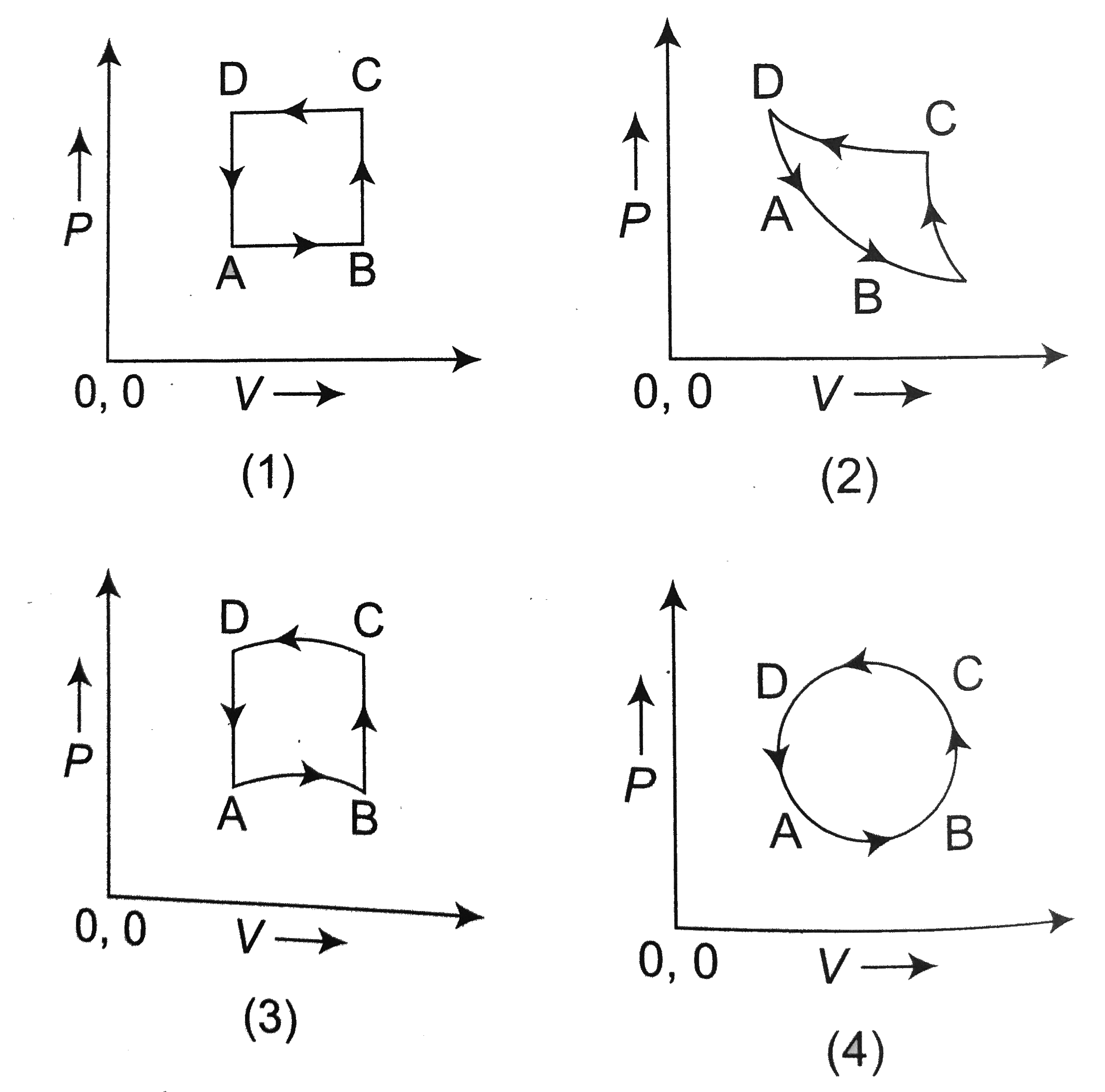A gas of volume changes 2 litre to 10 litre at constant temperature 300K, then the change in internal energy will be :
12 J
24 J
36 J
0 J
The correct Answer is:D
To solve the problem, we need to analyze the situation described:
1. Understanding the Problem: We have a gas that undergoes a volume change from 2 liters to 10 liters at a constant temperature of 300 K. We need to find the change in internal energy (ΔU) of the gas during this process.
2. Key Concept: The internal energy of an ideal gas is primarily a function of its temperature. For an ideal gas, the change in internal energy (ΔU) can be expressed as:
ΔU=nCvΔT
where:
- n is the number of moles of the gas,
- Cv is the molar heat capacity at constant volume,
- ΔT is the change in temperature.
3. Constant Temperature Condition: Since the problem states that the process occurs at constant temperature (isothermal process), we have:
ΔT=0
This means there is no change in temperature.
4. Calculating Change in Internal Energy: Substituting ΔT=0 into the equation for change in internal energy:
ΔU=nCv⋅0=0
Therefore, the change in internal energy (ΔU) is zero.
5. Conclusion: The change in internal energy when the gas expands from 2 liters to 10 liters at constant temperature is:
ΔU=0 joules
Thus, the correct answer is option D: 0 joules.
ΔU=nCvΔT
where:
- n is the number of moles of the gas,
- Cv is the molar heat capacity at constant volume,
- ΔT is the change in temperature.
ΔT=0
This means there is no change in temperature.
ΔU=nCv⋅0=0
Therefore, the change in internal energy (ΔU) is zero.
ΔU=0 joules
Similar Questions
Molar heat capacity of an ideal gas at constant volume is given by CV=2×10−2J (in Joule). If 3.5 mole of hits ideal gas are heated at constant volume from 300K to 400K the change in internal energy will be
View SolutionIn a container, two moles of a diatomic ideal gas is allowed to expand against 1atm pressrue & volume change from 2 litre of 5 litre then calculate change in internal energy.
View SolutionIf the ratio of specific heat of a gas of constant pressure to that at constant volume is γ, the change in internal energy of the mass of gas, when the volume changes from V to 2V at constant pressure p is
View SolutionIn a process, the pressure of a gas remains constant. If the temperature is doubles, then the change in the volume will be.
View SolutionA gas absorbs 200J of heat and expands against the external pressure of 1.5atm from a volume of 0.5 litre to 1.0 litre. Calculate the change in internal energy.
View SolutionOne mole of a gas absorbs 200 J of heat at constant volume. Its temperature rises from 298 K to 308 K. The change in internal energy is :-
View SolutionA gas expands against a variable pressure given by P=20V (where P in atm and V in L). During expansion from volume of 1 litre to 10 litre, the gas undergoes a change in internal energy of 400 J. How much heat is absorbed by the gas during expansion?
View SolutionA gas expands against a variable pressure given by P=20V bar. During expainsion from volume of 1 litre to 10 litre, the gas undergoes a change in internal energy of 400J. Heat absorbed by the gas during expansion ( in KJ):
View SolutionTwo moles of an ideal monatomic gas occupies a volume V at 27 °C. The gas expands adiabatically to a volume 2V. Calculate (i) the final temperature of the gas and (ii) change in its internal energy.
View SolutionIn following figs. Variation of volume by change of pressure is shown in Fig. A gas is taken along the path ABCDA. The change in internal energy of the gas will be:

View Solution
